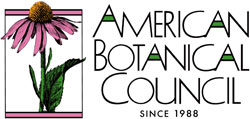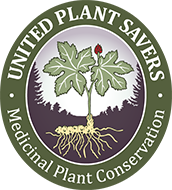Welcome to the online Southwest Conference on Botanical Medicine — Video streaming starting March 22, 2024
We have an outstanding online program planned for you, including live Zoom sessions through the weekend and streaming videos available both during and after the conference weekend. Thank you for joining us!
Attendee Page Directory
Your registration includes: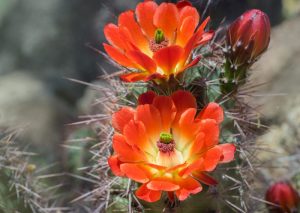
- Joining the live online conference sessions March 22-24
- Access to all streaming videos for 6 months
- Digital lecture notes and PowerPoints in PDF format to own
- Full set of audio recordings to own
- Continuing education – $25 fee. Add it to your registration here.
Pre-Conference Intensive on Friday, March 22
Online Intensive on Restorative Sleep with Lise Alschuler, ND, FABNO
Add this intensive to your registration or contact us to add it. You will need your original registration number from your receipt.
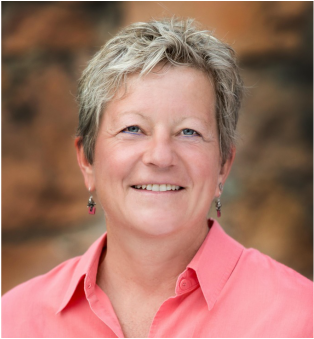
Title: Restorative Sleep: Integrative Strategies for Remediating Sleep Disorders
Date: Friday, 3/22/24
Time: 1:00 PM – 5:15 PM Arizona and Pacific Time on Zoom (recorded video available for those who can’t attend live)
Cost: $95
Continuing Education (for intensive attendees only):
- NDs: 2 pharmacy hours + 2 general hours (SUHS and OBNM)
- California NDs: Approved for 4 Prescribed Credits to AAFP
- Acupuncturists: 4 PE-CW PDA (NCCAOM)
- Nurses: Approved for 4 Prescribed Credits to AAFP
- Medical Doctors and Osteopathic Doctors: Approve for 4 Prescribed Credits to AAFP
Why Using Sustainably Sourced Herbs Matters and How to Find Them
Ann Armbrecht, PhD
What do you know about where the herbs in the herbal products you buy come from? What do you know about the companies producing those products? Are they investing in the long term human and ecological communities from which they source? Or are they looking for the best deal on the market? Most importantly, do you know why this matters?
10:30 AM – 12:00 PM, Arizona and Pacific Time
Herban Legends and Clinical Pearls in the Female Reproductive Materia Medica
Paul Bergner, Medical Herbalist
An Herban Legend is a persistent, widely and firmly held belief about a plant and its medicinal effects which is not true. A Clinical Pearl, on the other hand, is a useful and reliable property or indication for the herb, unrelated to the Legend. The origin of an Herban Legend or its rationale is obscure or forgotten, and is usually based on misinterpretation of science or tradition. It is repeated, believed, and repeated again from textbook to textbook, across a generation until it becomes “common knowledge”. A large number of such Legends are present in North American Herbalism for the category of female reproductive system herbs, usually relating to supposed hormonal effects. Each of the herbs we discuss will also have one or more Clinical Pearls. We will discuss Actaea spp, Angelica sinensis, Withania, Dioscorea, Humulus, Paeonia, Trifolium, Vitex, and the Viburnums.
How to Access: You can view this recording in the video section below.
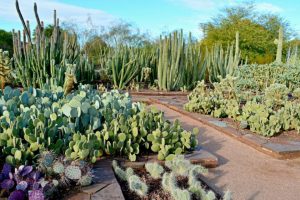 Pre-Conference Intensive (requires pre-registration)
Pre-Conference Intensive (requires pre-registration)
1:00 – 5:15 PM, Arizona and Pacific Time
Pre-Conference Intensive: Restorative Sleep: Integrative Strategies for Remediating Sleep Disorders
Lise Alschuler, ND, FABNO
This pre-conference intensive provides a deep dive into sleep from an integrative perspective. We review sleep architecture, the rationale for sleep, define sleep quality and discuss the importance of dreaming. From there we review several types of insomnia, specifically onset insomnia, maintenance insomnia, obstructive sleep apnea, and restless legs syndrome. For each of these conditions, the discussion includes pathophysiological contributors, and the benefits and risks of leading conventional and pharmaceutical management strategies. Finally, integrative and botanical approaches based on clinical experience are presented.
How to Access: This live session is now over. Intensive registrants can watch the recording below.
9:00 AM – 10:30 AM, Arizona and Pacific Time
A Comprehensive Management Plan for Multiple Sclerosis: Botanicals, Nutrients and the New Generation of Pharmaceuticals
Kenneth Proefrock, NMD
Multiple sclerosis (MS) is a chronic disabling disease of the central nervous system that affects people during early adulthood. Despite several US FDA-approved medications, the treatment options for MS are limited, and up to 70% or more of people with MS explore complementary and alternative medicine (CAM) treatments to help control their MS and treat their symptoms. We discuss the CAM anti-inflammatory and neuroprotective therapies most frequently used, including dietary strategies, fatty acid supplementation, alpha-lipoic acid, vitamin D analogs, thiamine derivatives, and other supplementation for both relapsing and progressive forms of MS. We include an overview of the conventional pharmaceutical approaches to MS, many of which are relatively new, with eight new drug interventions approved over the past five years. These represent some interesting shifts in therapeutic strategy, and many are very compatible with botanical medicine interventions. Case histories are included to illustrate these therapies.
How to Access: This live session is now over. Watch the recording below.
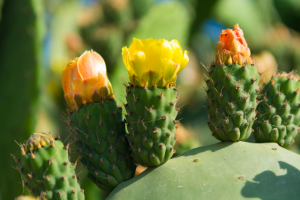 11:00 AM – 12:30 PM, Arizona and Pacific Time
11:00 AM – 12:30 PM, Arizona and Pacific Time
Treatment Approaches to the #1 Cause of Liver Disease in North America: MAFLD
Katie Stage, ND, RH (AHG), FABNG
Metabolic dysfunction-associated fatty liver disease (MAFLD), previously called nonalcoholic fatty liver disease (NAFLD) or simply “fatty liver”, impacts at least 25% of those in North America. This session explores MAFLD including differentiating it from other conditions affecting the liver, monitoring, and treatment. An emphasis is placed on natural treatment and prevention, although pharmaceutical approaches will also be covered.
How to Access: This live session is now over. Watch the recording below.
1:30 PM – 3:00 PM, Arizona and Pacific Time
Holistic Treatment of Rhinosinusitis
Todd Caldecott, Dip, CI.H., RH(AHG), CAP(NAMA), AAC
Rhinosinusitis refers to inflammation of the nasal cavity and paranasal sinuses, and can be classified as acute or chronic depending on the duration of symptoms. It is estimated to affect upwards of 16% of the population, and has a significant negative impact on the quality of life, associated with chronic fatigue, depression, and cognitive impairment. It is the fifth most common diagnosis for which antibiotics are prescribed, despite the lack of clear evidence for their effectiveness, contributing to the pervasive issue of antibiotic resistance. This lecture provides a practical overview of the holistic treatment of rhinosinusitis, drawn from decades of clinical experience, incorporating elements of nutrition, Ayurveda, lifestyle, and herbal medicine.
How to Access: This live session is now over. Watch the recording below.
3:30 PM – 5:00 PM, Arizona and Pacific Time
Panel Discussion: Prevention of Viral Infections: Building Immunity with Botanicals
Panelists: Paul Bergner, Medical Herbalist; Todd Caldecott, Dip, CI.H., RH(AHG), CAP(NAMA), AAC; and Katie Stage, ND, RH (AHG), FABNG
The COVID pandemic taught us valuable lessons in the prevention of viral infection, which can be applied to all viruses, and especially to future, as yet unknown, viruses. Three experienced practitioners weigh in on the botanical and other natural therapies they have found to be the most effective preventatives, building host immunity before a viral infection can take hold.
How to Access: This live session is now over. Watch the recording below.
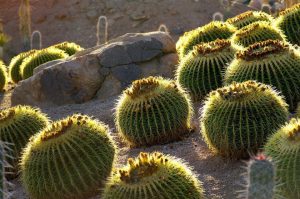 9:00 AM – 10:30 AM, Arizona and Pacific Time
9:00 AM – 10:30 AM, Arizona and Pacific Time
Panel Discussion: Botanical Therapies for Recovery from Myocardial Infarction (MI)
Panelists: Lise Alschuler, ND, FABNO; Kenneth Proefrock, NMD; and Jillian Stansbury, ND
A myocardial infarction (MI) or heart attack can leave a patient debilitated and bewildered when trying to discover the best path forward to re-establishing health. The pharmaceutical standard of care for recovery is part of the picture, but when patients come to us for additional care, we need to exercise knowledge and responsible caution when prescribing adjunctive botanicals and nutrients. We present three practitioners with invaluable clinical experience in navigating the return to health after an MI.
How to Access: This live session is now over. Watch the recording below.
11:00 AM – 12:30 PM, Arizona and Pacific Time
How to Mitigate the Effects of Mold and Mycotoxin Exposure
Marianne Marchese, ND
Dr. Marchese explains the sources of exposure of mold/mycotoxins and their adverse health effects on the pulmonary, immune and neurological system. She describes links to allergies, asthma, sinusitis, neuropathy and altered immune function, and presents the latest research on how to utilize botanical medicine, nutraceuticals and pharmaceuticals to provide an integrative treatment approach.
How to Access: This live session is now over. Watch the recording below.
1:30 PM – 3:00 PM, Arizona and Pacific Time
Ending Opioid Addiction: Using Herbs and Nutrients to Support the Brain and Body Through Withdrawal into Vibrant Living
Christina Veselak, MS, CN, LMFT (in CO)
This presentation describes the endorphin neurotransmitter system and how opioid dependency and addiction occurs in the brain. We then describe some of the biochemical causes of acute and post-acute withdrawal symptoms and how to alleviate them using herbs, amino acid therapy, and other helpful nutrients. Finally, herbal and nutritional underpinnings of relapse prevention are explored.
How to Access: This live session is now over. Watch the recording below.
3:30 PM – 5:00 PM, Arizona and Pacific Time
Botanical Solutions for Viral Infections – From Acute to Chronic Sequelae
Kristin Gilmour, BHSc (Naturopathy) and Julianne Grant, BHSc (Naturopathy), BApSc (HM)
Phytomedicines and medicinal mushrooms can play an enormous role in overcoming viral infections and in reducing, or averting, their chronic pathological sequalae. This lecture encompasses the physiological mechanisms of acute and chronic viral infection, the mechanisms by which viruses can re-emerge within the host, and the pathophysiological outcomes of chronic infection. Using specific viral examples, including COVID and herpesviruses, this lecture demonstrates the progression from acute to chronic sequalae, and discusses botanical treatment aims and the relevant properties and application of phytomedicines and medicinal mushrooms.
How to Access: This live session is now over. Watch the recording below.
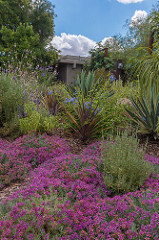
Lise Alschuler, ND, FABNO
1. Pre-Conference Intensive: Restorative Sleep: Integrative Strategies for Remediating Sleep Disorders
2. Finding Flow in the Lymphatics
3. Panel: Botanical Therapies for Recovery from Myocardial Infarction (MI)
Ann Armbrecht, PhD
1. Why Using Sustainably Sourced Herbs Matters and How to Find Them
Lydia Bartholow, DNP, PMHNP
1. From Papaver to Fentanyl: How We Got Here and How Herbs Can Help
Paul Bergner, Medical Herbalist
1. Comparative Materia Medica for the Bitter Herbs
2. Herban Legends and Clinical Pearls in the Female Reproductive Materia Medica
3. Panel: Prevention of Viral Infections: Building Immunity with Botanicals
Todd Caldecott, Dip, CI.H., RH(AHG), CAP(NAMA), AAC
1. Psilocybin Mushrooms in Clinical Practice
2. Holistic Treatment of Rhinosinusitis
3. Panel: Prevention of Viral Infections: Building Immunity with Botanicals
Renée Camila, Herbalist
1. As Part of a Whole: Insecurity as Physical Indication
Kristin Gilmour, BHSc (Naturopathy) and Julianne Grant, BHSc (Naturopathy), BApSc (HM)
1. Botanical Solutions for Viral Infections – From Acute to Chronic Sequelae
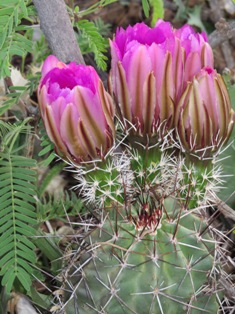 Marianne Marchese, ND
Marianne Marchese, ND
1. How to Mitigate the Effects of Mold and Mycotoxin Exposure
Brianna Piché, ND, RH (AHG), FABNP
1. Breastfeeding Medicine: Low Milk Supply, Galactagogues and Botanicals for Common Breastfeeding Pitfalls
2. Herbs and Pediatric Fever
Kenneth Proefrock, NMD
1. A Comprehensive Management Plan for Multiple Sclerosis: Botanicals, Nutrients and the New Generation of Pharmaceuticals
2. The Evolution of Wound Care: Botanical Medicine-Based Considerations and Strategies
3. Panel: Botanical Therapies for Recovery from Myocardial Infarction (MI)
Mary Rondeau, ND, RH (AHG)
1. For the Family: Using EEG BioMarker Patterns to Guide Parenting and Relationship Strategies Including Botanicals Indicated for these Patterns
Katie Stage, ND, RH (AHG), FABNG
1. Treatment Approaches to the #1 Cause of Liver Disease in North America: MAFLD
2. Panel: Prevention of Viral Infections: Building Immunity with Botanicals
Jillian Stansbury, ND
1. Herbal Anodynes: Palliatives for Pain
2. Review of COPD Pathophysiology and Available Therapies
3. Panel: Botanical Therapies for Recovery from Myocardial Infarction (MI)
Christina Veselak, MS, CN, LMFT (in CO)
1. Ending Opioid Addiction: Using Herbs and Nutrients to Support the Brain and Body Through Withdrawal into Vibrant Living
Digital Lecture Notes
To view/download/save individual lecture notes, please visit the password-protected lecture notes page.
To view/download/save the compiled digital book, please visit here.
- NOTE: The password for lecture notes, videos and Zoom sessions will be emailed to registrants on 3/20.
Continuing Education (CE) Information for Attendees
If you haven’t already, please sign up in advance for the CE program ($25 additional fee). Add it to your registration here. You will need your registration number from your original receipt.
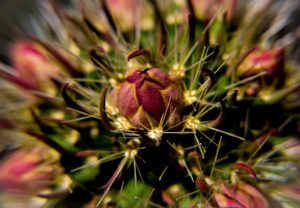 CE Forms and Due Dates:
CE Forms and Due Dates:
Acupuncturists’ forms are due no later than April 21 due to NCCAOM guidelines. All other CE participants’ forms can be submitted within the calendar year.
- Note: Please fill out your CE form as you watch/attend sessions to record the CE catalog code number.
CE Codes can be found before/after live Zoom sessions, in the title line of each video (under the streaming video), and on the CE detail pages linked below.
Continuing Education Forms:
Please download and save the form to your computer prior to filling it out.
- Acupuncturists: NCCAOM Form
- Naturopathic Physicians: ND Evaluation Form
- Washington NDs: WA ND Quiz Form
- MD, DO, California ND and Nursing Professionals: AAFP Form
Continuing Education Approvals:
NATUROPATHIC PHYSICIANS:
- Approved for 35.5 hours of which 13 can be pharmacy, or 10 pharmacy + 3 opioid/addiction credits (SUHS and OBNM)
- California NDs: Approved for 32.5 Prescribed Credits (AAFP)
- Full ND CE details
ACUPUNCTURISTS:
- Approved for 19 PDA hours for live event only (NCCAOM)
- Full NCCAOM approval details
NURSES:
- Approved for 32.5 Prescribed Credits (AAFP)
- Full AAFP approval details
- AAFP is recognized by the ANCC as a provider of nursing continuing education for RNs, FNPs and other nursing professionals.
MEDICAL AND OSTEOPATHIC DOCTORS:
- Approved for 32.5 Prescribed Credits (AAFP)
- Full AAFP approval details
- AAFP Prescribed credit is accepted by the American Medical Association as equivalent to AMA PRA Category 1 credit(s)™ toward the AMA Physician’s Recognition Award. When applying for the AMA PRA, Prescribed credit earned must be reported as Prescribed, not as Category 1.
A general certificate of attendance is available to any participant who requests it.
Questions about continuing education? Please email us and we’ll be happy to help.
Sponsors and Exhibitors
If you’re interested in sponsorship or exhibiting, please contact us. Many thanks to our sponsors this year who help make this conference and our scholarship program possible!
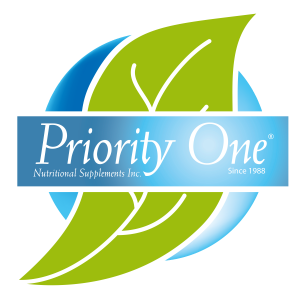 Priority One Vitamins
Priority One Vitamins
Website • Facebook • Instagram
We are a privately-held and family-operated Pacific Northwest company, serving you since 1988. We have 3 generations of family on staff! Our formulas are professional grade, GMO-free and feature no artificial additives. We manufacture these high-potency nutritional supplements for bio-availability and optimal function for your patients. All of our products are manufactured in a cGMP (Good Manufacturing Practices) certified facility with a 100% FDA inspection record and is certified by the State of Washington.
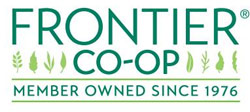 Frontier Co-op
Frontier Co-op
Website • Facebook • Instagram • Twitter • Pinterest
Frontier Co-op has been a member-owned cooperative supporting natural living since 1976 — owned by stores and other organizations that buy and sell our products. We care deeply about our co-op’s effect on the world, and we’re sincerely committed to helping the communities where our products are produced. Your purchases benefit struggling families and communities around the world as we do business with the goal of treating everyone fairly and having a positive impact in the world.
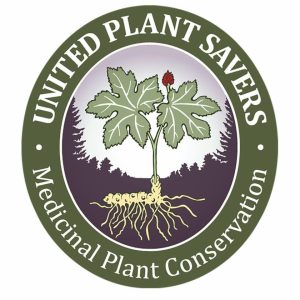 United Plant Savers
United Plant SaversWebsite • Facebook • Instagram
United Plant Savers’ mission is to protect native medicinal plants of the United States and Canada and their native habitat while ensuring an abundant renewable supply of medicinal plants for generations to come. Increased usage of botanical medicine, along with habitat destruction, are causing an ever-increasing shortage of wild plant resources, including some of our most treasured medicinal species. This work involves research, education, and conservation of native medicinal plants and their habitats. We hope that you will join us in this worthwhile and important mission. UpS is a 501 (C)3 non-profit organization.
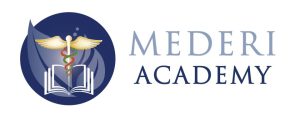 Mederi Academy
Mederi Academy
Website
Mederi Academy is an online training program* that teaches healthcare practitioners how to incorporate the Mederi Care® model (also known as Eclectic Triphasic Medical System or ETMS) into their practice. The goal of the program is to provide clinicians with the skills they need to enhance patient vitality and significantly improve the quality of life and longevity for people facing cancer and other serious health challenges.Mederi Academy is open to credentialed, certified, or licensed healthcare practitioners who are committed to providing comprehensive care in the field of integrative and holistic medicine.
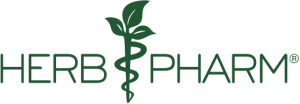 Herb Pharm
Herb Pharm
Website • Facebook • Instagram • Pinterest • LinkedIn • Twitter
Our mission is to create the highest quality herbal extracts possible. We’re committed to educating people on how to practice safe, effective herbalism. We believe that our work can inspire more love for plants and respect for Nature and it will improve the health, happiness and harmony of the Earth and all its people. Supporting your health since 1979.
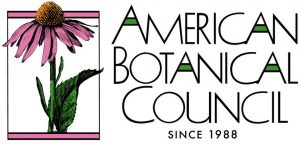 American Botanical Council
American Botanical Council
Website • Facebook • LinkedIn
The American Botanical Council provides education using science-based and traditional information to promote responsible use of herbal medicine — serving the public, researchers, educators, healthcare professionals, industry and media
Cancellations: By March 6, registration fees will be refunded minus $50 processing per registrant. No refunds can be given after 3/6/24. Refund requests should be emailed to the Registration Office.
We look forward to enjoying a weekend of herbal medicine education with you!
Herbal Educational Services
Contact us




